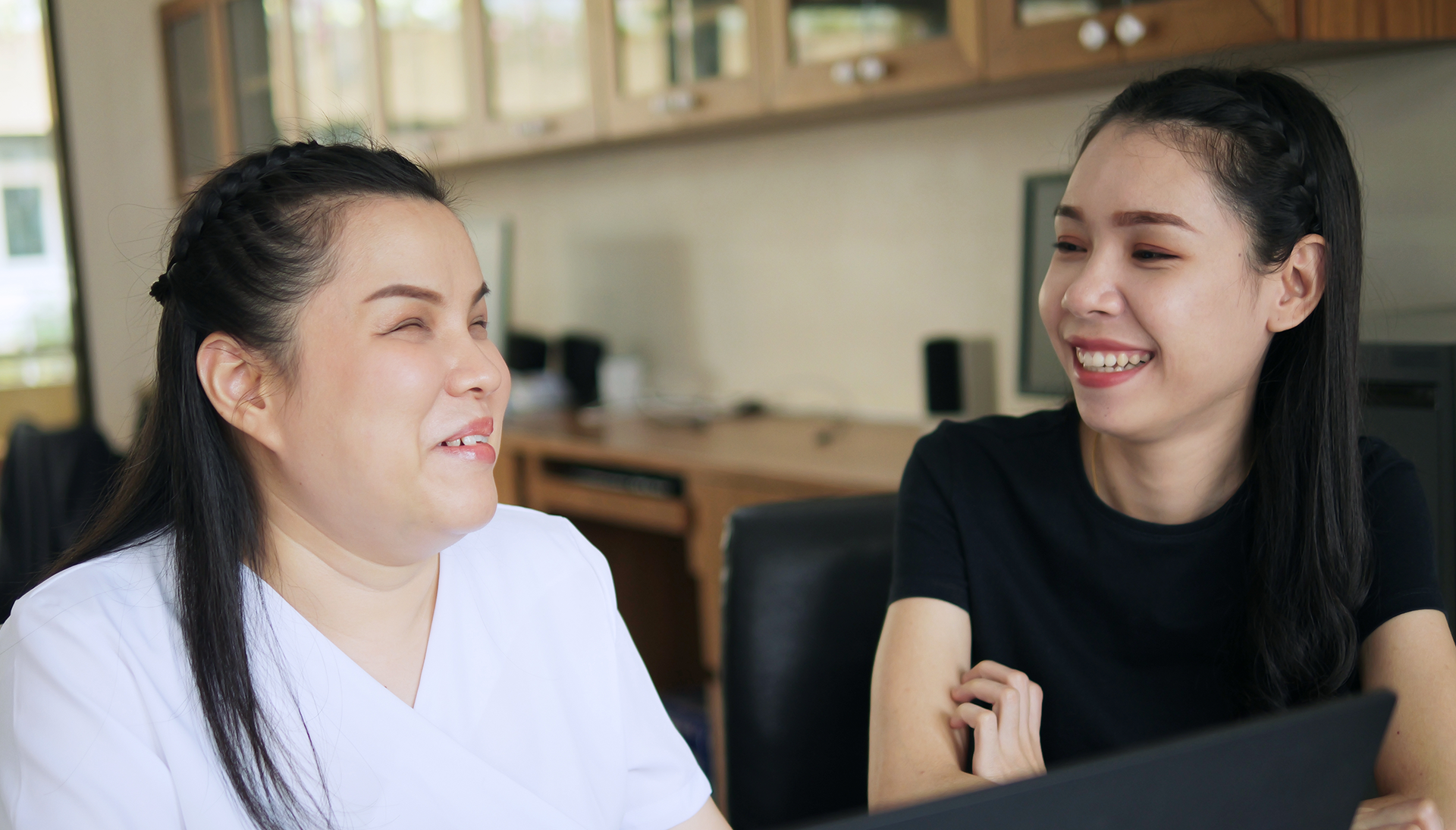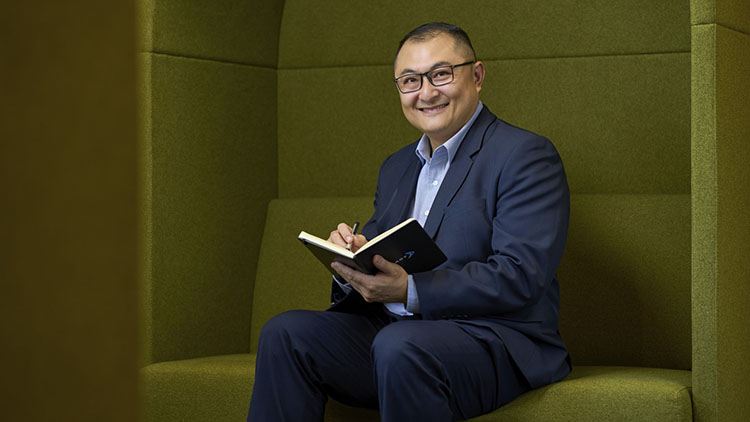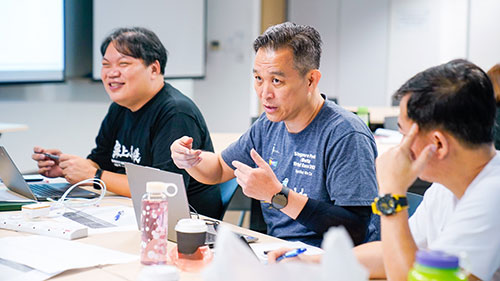Improving Patient Outcomes through Advanced Clinical Supervision Competency
The Singapore Institute of Technology (SIT) taps on evidence-based education practices to address the increasing demand for advanced clinical supervision competencies among Allied Health Professionals and improve patient outcomes.
Health Sciences, Adult and Geriatric Rehabilitation, Competency-based Education
A new Certificate of Clinical Supervision was launched last year by the Singapore Institute of Technology (SIT) to develop the capabilities of senior Allied Health Professionals (AHPs) to train their juniors effectively.
The course is targeted at AHPs, a diverse group of healthcare professionals serving across specialisations such as physiotherapy, occupational therapy and diagnostic radiography.
"Clinical supervision focuses on patient safety and improved patient outcomes. We want to equip AHPs with intermediate-level competencies to improve their effectiveness in clinical supervision. The indirect outcome we hope to achieve is to promote the culture of teaching and learning and well-being of AHPs at the workplace," SIT’s Associate Professor, Heidi Tan, said.
A/Prof Tan, also a Senior Principal Occupational Therapist at Tan Tock Seng Hospital, was speaking at the CBExchange Asia Pacific conference on 1 March 2024, organised by SIT in partnership with Competency-Based Education Network.
Senior AHPs do not need to attend the clinical supervision course before taking on the role of a clinical supervisor. Typically, they are expected to support the development of students or younger AHPs as they become more experienced clinicians. So, many of them learn to become clinical supervisors on the job, she added.
However, there has been an increasing demand for advanced clinical supervision competencies among AHPs due to macro changes in Singapore’s healthcare sector, including the introduction of a pre-employment clinical training fund and a mandatory supervisory framework for conditionally-registered AHPs in 2013.
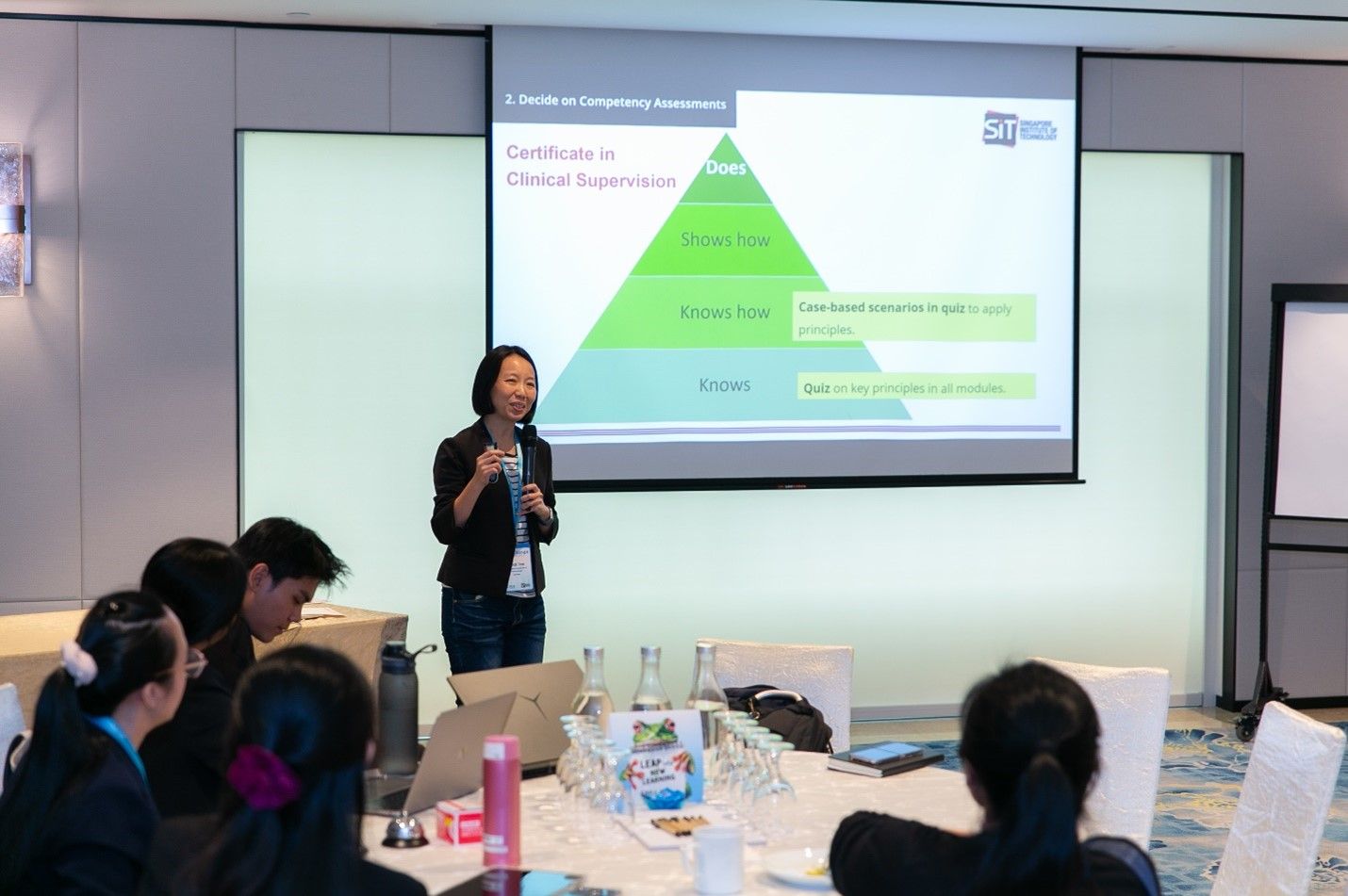
SIT's Associate Professor Heidi Tan shared the challenges in implementing performance-based assessments in Continuing Education and Training (CET) programmes at the CBExchange APAC Conference 2024. Image: Keng Photography for SIT.
As a result, this has increased the accountability of AHP departments in providing high-quality clinical supervision, training and assessment.
A/Prof Tan added that the new certification also complemented the clinical training of students in the six Allied Health Bachelor’s degree programmes offered by SIT, including physiotherapy, occupational therapy, speech therapy, dietetics and nutrition, diagnostic radiography, and radiation therapy.
Speaking to GovInsider, she explains that the course content is versatile and adaptable across the different Allied Health professions: “Essentially, you’re teaching generic clinical supervision and teaching skills, so it is not just applicable to one profession.”
A competency-based approach to upskilling
In defining the learning outcomes, SIT referenced the Skills Framework for Healthcare, an initiative designed by SkillsFuture Singapore in 2018 to promote skills mastery and lifelong learning for the Singapore healthcare workforce.
According to A/Prof Tan, the framework helped the SIT team to develop the course curriculum and assessment. It provided the team with a list of competencies expected for each of the different proficiency levels around the specific role of AHPs in clinical teaching and supervision.
A competency-based approach to upskilling focuses on application rather than only acquiring skills and knowledge. In essence, it emphasises the learner’s ability to apply these skills in real-world settings.
That said, the course taps into a diverse range of learning activities and modes of assessment. Learning activities span e-learning, workshops, peer feedback, group coaching, workplace application and reflection, while multiple modes of assessment include quizzes, short answer questions, workplace assessment and video presentations.
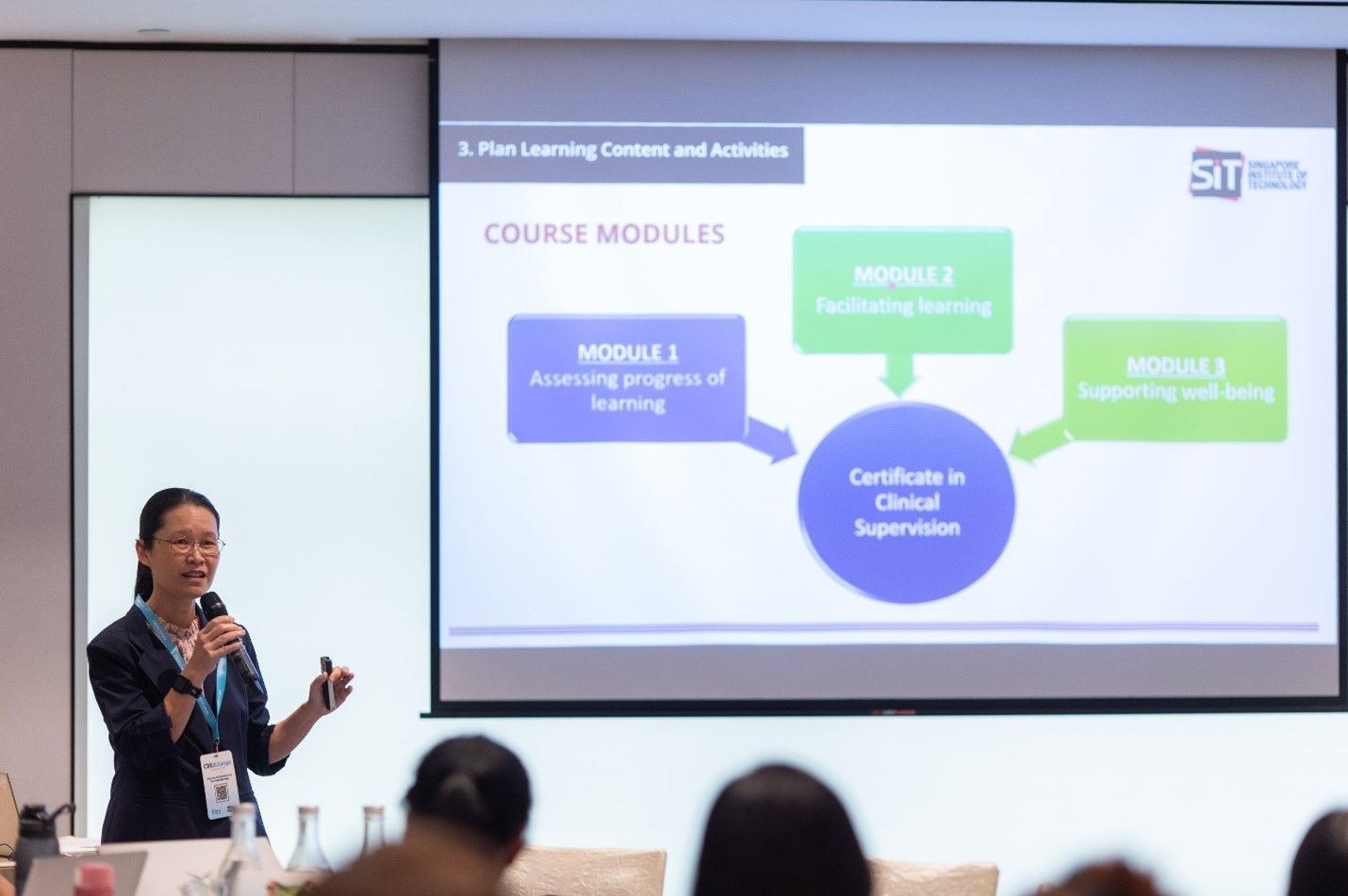
SIT’s Adjunct Assistant Professor Sng Li Hoon shared strategies to support the cultivation of clinical supervisor competencies during a breakout session at the CBExchange APAC Conference 2024. Image: Keng Photography for SIT.
There are also objective structured teaching exercises (OSTE), which involve simulated scenarios where learners are assessed on their application of educational skills during interaction with “student actors”.
SIT’s Adjunct Assistant Professor Sng Li Hoon, a Senior Principal Radiographer at the Department of Radiology of Sengkang General Hospital, pointed out several practical considerations in developing competency-based assessments.
A good assessment is when learners can demonstrate the application of what they have learnt, is feasible for faculty and learners working full-time, and has a simple enough assessment rubric to set performance expectations, she said.
About the certificate programme
The first run of the course last year saw 30, mostly senior AHPs, enrolled. 20% of them did not meet one of five competency-based assessment requirements at the first attempt.
"We required those who were unsuccessful at the first attempt to re-submit their performance-based assessment. We gave them feedback to help them understand the competencies that they were lacking. Subsequently, we allowed them to re-submit their assessment to demonstrate that they could fulfil the competencies at their workplace," said Assistant Professor Sng.
The course spans about 50 hours over four months and comprises e-learning, a face-to-face workshop, and a coaching session. There is also an accelerated course pathway spanning over 28 hours, recognising the prior learning and workplace experiences of AHPs with clinical supervision roles.
More than 50% of the teaching faculty play a dual role as an Allied Health practitioner at public healthcare institutions and community care organisations in Singapore and bring valuable workplace supervisory experiences.
About half of the learners came from hospitals, and the rest from community care organisations, such as daycare centres and special schools.
“Many of our learners want to be better clinical supervisors and are intrinsically motivated to engage in continuous professional development,” said A/Prof Tan. “The course provides an opportunity for clinical supervisors to learn educational theories, reflect on their supervisory practices and engage in collaborative learning with other supervisors.”
The positive feedback gathered from learners in the first run centred around the high relevance and applicability of the content to the actual clinical setting, with the need for learners to demonstrate competency to pass the assessments.
Those who are interested in finding out more about the certificate programme may visit the following website.
This article was originally published on GovInsider.
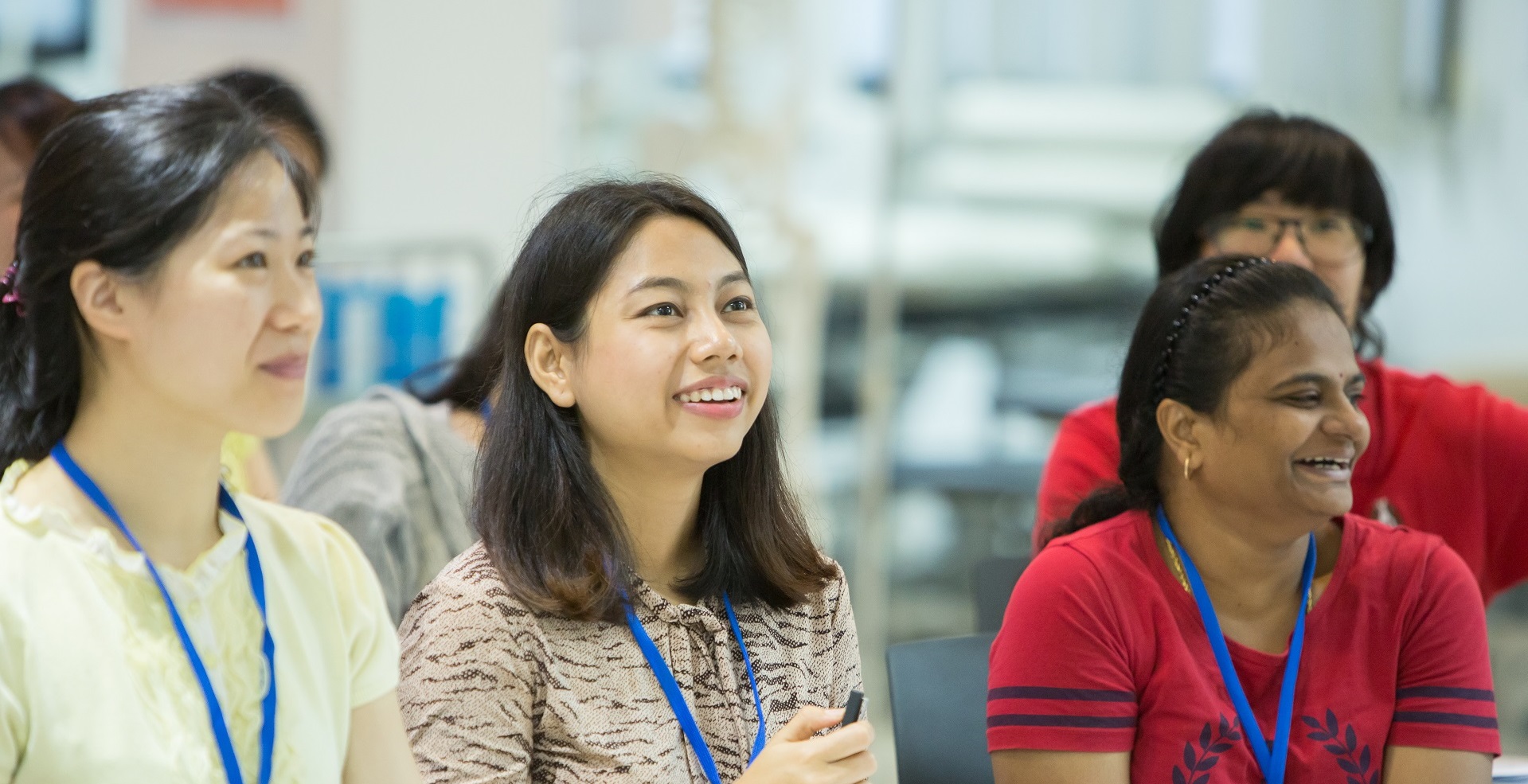
About SITLEARN


